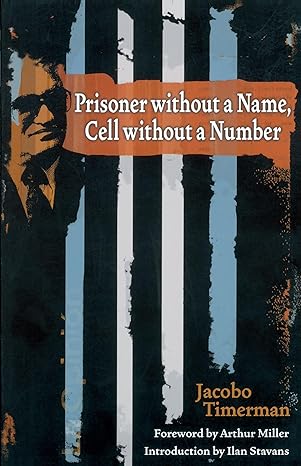During the school year 1980-1981, when I was a junior in high school, my family sponsored a foreign exchange student from Argentina named Mario. This was during the later years of Argentina’s “Dirty War,” at which time the country was ruled by a military junta known as the National Reorganization Process. Early in ‘81 the Argentinian writer Jacobo Timerman, who had been exiled to Israel, published a memoir called Prisoner Without A Name, Cell Without A Number, which chronicled his time of persecution, imprisonment, and torture at the hands of the NRP. Timmerman was one among some 30,000 Argentines whom the junta “disappeared” during The Dirty War, for having –or being suspected of having– opposing political views.

As you might expect, as soon as Mario found out about this book, he sought out a copy. I remember the family discussing the atrocities he described as he was reading the book, and about whether or not the book might be banned in Argentina (we learned later that it was not). It was gut-wrenching for us to think about living under those kinds of conditions, where just any Joe on the street could become a target of the government and literally be snatched up and shipped off to God-only-knows where and subjected to God-only-knows what fate. We were sickened by it.
Forty-four short years later and here we are, America.
